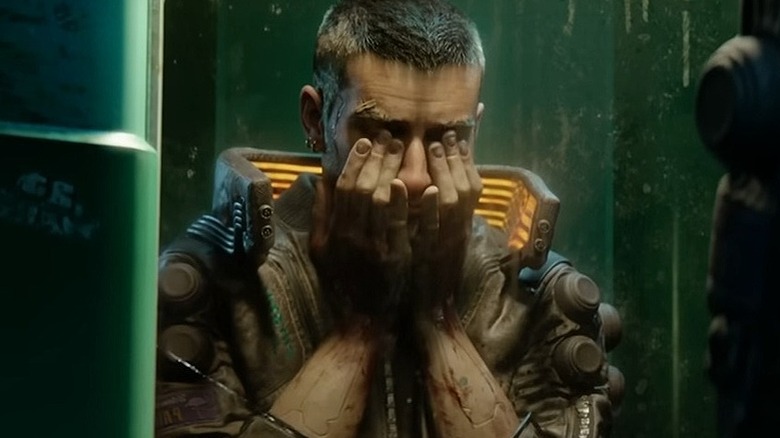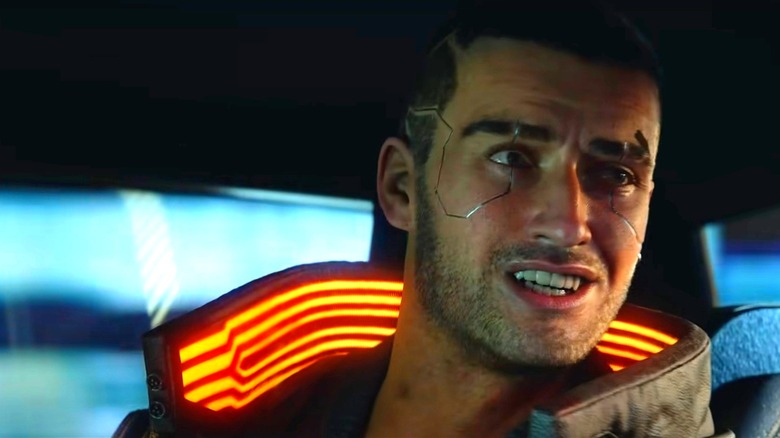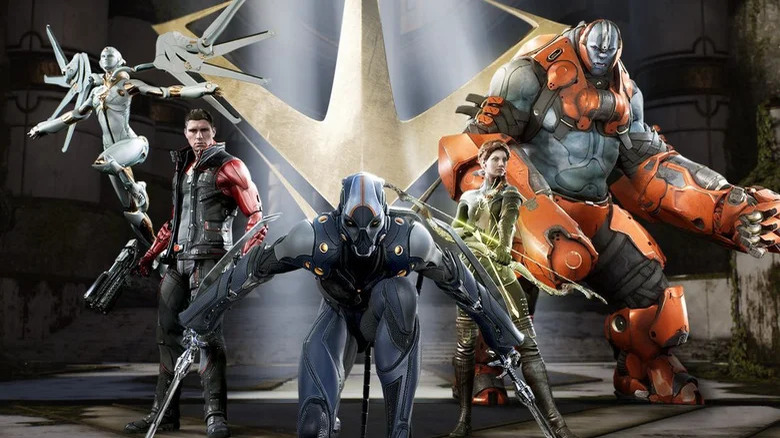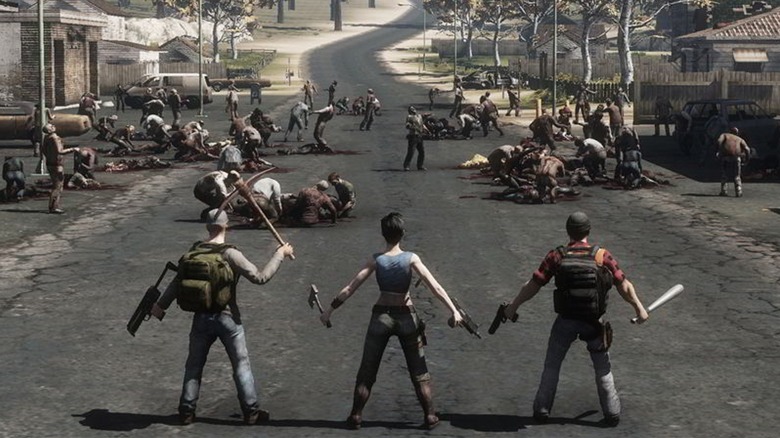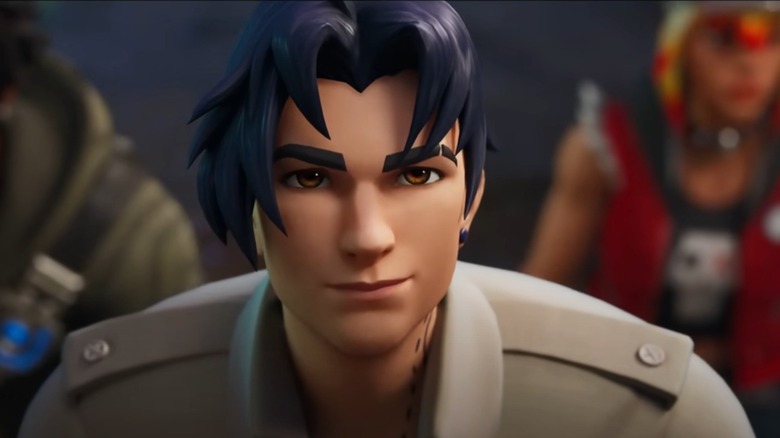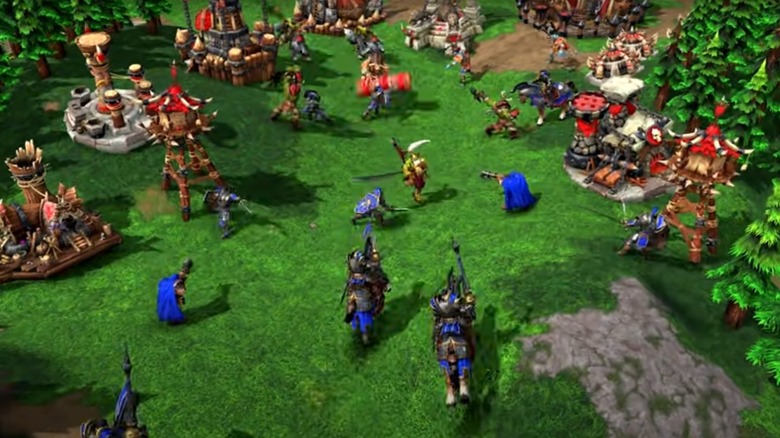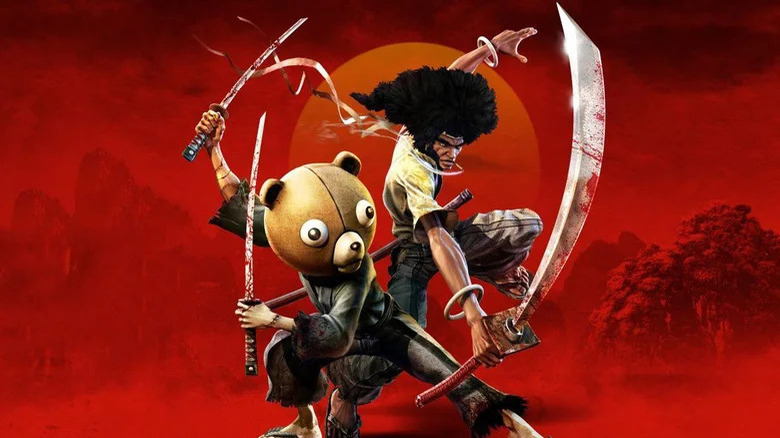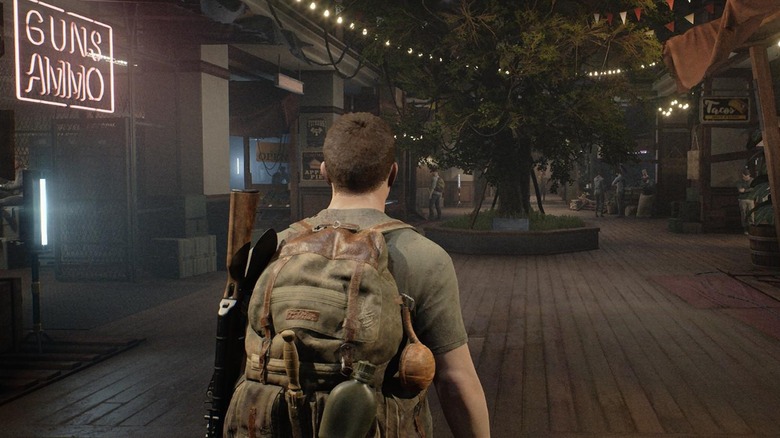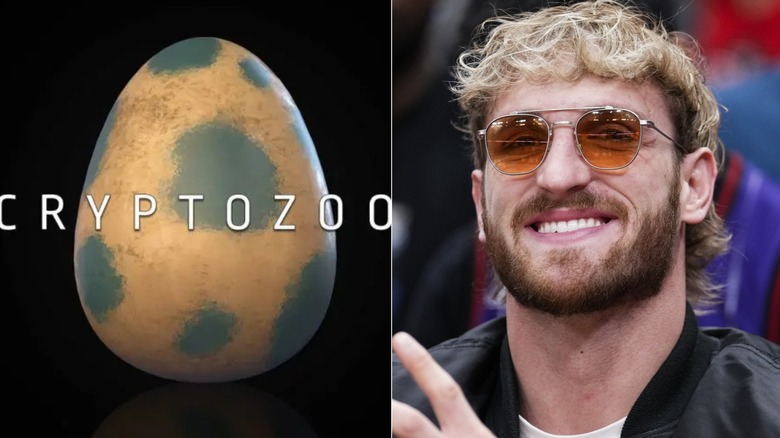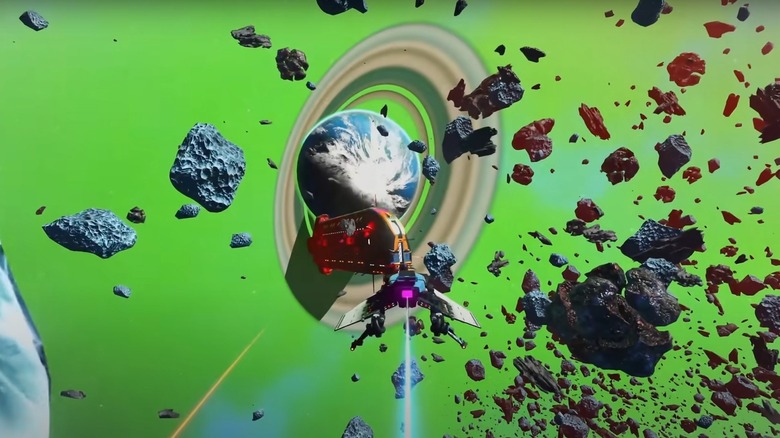Video Game Failures That Caused Mass Refunds
Anyone who has been playing video games long enough has experienced a bit of financial regret, particularly when it comes to bad games. We all know the feeling: It starts when you preorder a game. You get hyped up for a new game, you watch the trailers, talk about it with friends, and plan out what your first playthrough is going to look like — and then the game comes out and it stinks. Making it through even those first few hours of gameplay is hard and unpleasant, if not outright impossible.
Maybe the game simply is not what was promised, missing features that the developers advertised before release. Perhaps it is so filled with bugs and performance issues that it is quite literally unplayable. It could also be that the game's much-hyped story and world leave much to be desired, feeling ultimately shallow or meaningless. When a game fails to meet these high expectations, it often gets relegated to the sale rack. Other times, a game turns out so egregiously flawed or disappointing that it goes a different route entirely, resulting in tons of refunds. Here are a few games that have experienced that fate.
Cyberpunk 2077
"Cyberpunk 2077" was one of the most-hyped game releases of the 2010s, even though it didn't end up actually being released until 2020. Perhaps its extremely extended development period should have been the first red flag. Once it was released, "Cyberpunk 2077" became one of the poster children for bad game launches. It's no surprise it finds itself on this list, then. At launch, "Cyberpunk 2077" was filled with everything mentioned above. Players complained of performance problems, missing features, a disappointing story, and innumerable bugs.
This disappointment led to a huge number of players refunding the game. "Cyberpunk 2077" developer CD Projekt helped players with this, attempting to salvage some of the company's reputation via its "Help Me Refund" project. The game was even delisted from Sony's Playstation store for months after release, allowing the devs some time to patch it up and bring it closer to expectations.
The initial costs of the player refunds and the "Help Me Refund" project was rumored to be a little over two million dollars, however, CD Projekt's financial statements for 2020 would later reveal that the true cost was instead over fifty million dollars. Despite this abject financial disaster, the company never gave up on "Cyberpunk." In the time since, the developer has released countless patches, content updates, and expansions, slowly but surely turning the game into something resembling what it was meant to be. It is now well-liked by those who still play it, but much of its public reputation remains tainted by the disastrous days after its launch.
Paragon
"Paragon" was a MOBA made by Epic Games that was released into early access in March 2016. The game was Epic's attempt to latch onto the wildly popular MOBA genre — which was arguably at peak popularity around that time — and maybe even create its own esports game. The game was a mild disappointment, launching to a somewhat muted and mixed reception from fans and critics alike. A mediocre game, however, would not normally be the subject of mass refunds. What landed "Paragon" in that category was actually another Epic Games' release, "Fortnite." When that game's "Battle Royale" mode released, Epic found itself with one of the greatest surprise hits in gaming history.
Understandably, Epic decided to put considerable financial resources and personnel into capturing and maintaining the lightning in a bottle that is "Fortnite." This meant taking developers and money from other games — especially "Paragon" — and moving them to Fortnite. Eventually, Epic Games decided to move away from "Paragon" entirely, with the game having been a mild flop and "Fortnite" now being the company's path forward in the multiplayer competitive gaming space. Epic shut the servers for "Paragon" down in April 2018, just over two years after its initial early access launch, and offered full refunds to anyone who had bought the game.
The WarZ
"The WarZ" was a part of the craze of zombie horror survival games in the early 2010s that looked to capitalize on a rising trend. The "WarZ," however, was missing a huge variety of features that had been promised when it launched in early access. Namely, it boasted a much smaller map and smaller servers than were originally marketed in its Steam store description. This misleading description led Valve to take the game off its store and offer refunds to anyone who requested one from Steam customer support. The WarZ's developer apologized for the debacle (per PC Gamer), but also tried to claim that customers had simply misread the description, which left a bad taste in players' mouths.
The game was eventually put back up on the Steam store and was later rebranded as "Infestation: Survivor Stories." This new name was chosen due to a copyright issue with the previous title, though some have theorized that the rebrand might have been done to escape the stigma of the game's poor reception at launch. The new version didn't exactly light the world on fire, even after the rebrand and a few improvements, and another sort of soft-reboot successor was released called "Romero's Aftermath." That version didn't meet with much success, either.
Fortnite
"Fortnite" is a game that, by any measure, has been one of the most successful games of the last decade. In fact, it was so successful that it led to the inclusion of "Paragon" on this list. So why is it also on here? Well, "Fortnite" hasn't flourished without its share of controversies, including discourse around how the game is monetized. As a result, Epic Games has had to fork over some seriously huge amounts of cash to refund players.
In 2023, the FTC fined Epic Games $245 million for what the New York Times categorized as "manipulative online practices," which allegedly tricked players into spending money on in-game content that they simply did not want. This was in addition to the $275 million Epic Games had paid in a settlement with the FTC for the game's violation of the Children's Online Privacy Protection Act, having made it far too easy for children to spend huge amounts of their parents' money in the game. The $245 million fee actually earned a Guinness World Record for Biggest Video Game Refund, cementing a place in history for Epic Games' truly epic financial miscalculation.
WarCraft 3: Reforged
"Warcraft 3: Reign of Chaos" was one of the most-beloved games of all time when it came out in 2002. That makes sense, as it was the immediate predecessor to one of gaming's greatest success stories, "World of Warcraft," an MMO still played and enjoyed by millions to this day. The 2022 remaster of "Warcraft 3," "Warcraft 3: Reforged," could not have found itself further from the success of those that came before it, though.
The game was met with mixed reviews from critics, but it was outright reviled by fans of the "Warcraft" series. Gamers pointed to everything from a variety of missing features to oodles of bugs and frequent crashes as causes for concern. Perhaps the biggest reason for their distaste was the cardinal sin of any bad remaster or remake: It changed features the original had for the worse, and in some cases just outright removed them. This was made worse by the fact that "Reforged" became the only officially available version of the game, meaning players were unable to go back to the original, even if they liked it better.
Shortly after launch, many players reported they were able to get instant refunds for their purchases of "Reforged." Blizzard released a statement outlining some of its plans for fixing bugs and adding in missing features to bring the game to where it needed to be. However, Blizzard stood by some of its more controversial moves, such as the lack of completely new cutscenes and the removal of the Reign of Chaos ruleset.
Afro Samurai 2: Revenge of Kuma Volume One
"Afro Samurai 2: Revenge of Kuma Volume One" was the 2015 sequel to 2009's "Afro Samurai," a game that itself had only met with moderate success. The sequel, which was intended to be the first volume of several "Afro Samurai 2" installments, was a complete disaster. The game was a bug-filled mess, but the biggest complaints centered around audio issues that made the game anywhere from an irritating experience at best to an outright uncomfortable one at worst. When combined with clunky gameplay, constant freezes, and laughable voice acting, "Revenge of Kuma" was pretty much unplayable.
Developer Versus Evil wasted no time in apologizing for the poor quality of the product, canceled further planned volumes of "Afro Samurai 2," and offered every player who bought the game a full refund. Steam and Sony took the games down from their online stores as well, and that was the end of "Afro Samurai 2: Revenge of Kuma Volume One."
The Day Before
The disastrous launch of "The Day Before" is still fresh in the consciousness of gaming culture. There are some games that had difficult launches on this list, but "The Day Before ” is the only one that was so bad the developer announced its closure mere days after launch. Some fans have even speculated that "The Day Before" was all a scam from the beginning. Even before launch, many gamers were skeptical of the game due to its repeatedly delayed release and accusations of stolen assets in its trailers. Others worried about the inexperience of the development team, with Fntastic strangely using unpaid volunteers to help make the game. In the wake of its failure, some fans believe the whole thing was just a con designed to run off with players' money.
Regardless, pretty much everyone who bought "The Day Before" was disappointed. It was pitched as an open world zombie apocalypse survival game with a huge map and tons of depth to its world and lore. Instead, what players got was a barebones extraction shooter with some minor survival elements. After it became clear the game was so far from what was promised, Steam began offering players refunds, regardless of whether they'd exceeded the usual two hours of playtime that locks players out of them. Leaked reports from shortly after the game's release indicated that nearly half of all players who purchased "The Day Before" ended up returning it.
CryptoZoo
Logan Paul has become a hugely controversial and often reviled public figure for a variety of reasons. Somewhere among this list of reasons is his NFT-based game "CryptoZoo." The game's official website describes its as "an NFT, DeFi platform, and Metaverse where Zookeepers can Collect and Breed exotic animal hybrids that yield $ZOO on the blockchain." What exactly is intended by that is anyone's guess, but what has become clear is that the game did not meet player's expectations, with many accusing Paul of running a scam with the title. "CryptoZoo" was accused of being used to artificially drive up crypto prices, inflating the crypto bubble further. Other complaints included marketing a crypto-based game to younger audiences, as well as the game's lack of overall functionality, despite the huge amount of money invested in it.
After being hit with a class action suit, Paul eventually tried to make things right for "CryptoZoo" players — sort of. He offered anyone who wanted it a full refund, but there was a catch: You can't sue him for his supposed scam of a game if you take the refund. This generated further criticism towards Logan Paul, with some arguing that he was just trying to look out for himself.
Today, I am incredibly happy to announce that I am delivering on my promise to buy back Base Egg and Base Animal CryptoZoo NFTs for their original purchase price. This buy-back program is being carried out at https://t.co/XIQzLAGKiG. Claims can be submitted through this site… pic.twitter.com/VMPDHvdXkq
— Logan Paul (@LoganPaul) January 4, 2024
No Man's Sky
"No Man's Sky" is a game that's mostly well-liked by those who play it now, but it was considered to be a massive disappointment when it first released. In fact, it has never really fully escaped the reputation it had at launch, still being seen by many gamers as the standard-bearer for what it looks like when a developer overpromises and under-delivers.
Developer Hello Games was accused of trying to hide the fact that the promised multiplayer wasn't in the game at launch, with stickers covering the part on the box that still advertised the feature. This was in addition to numerous other features that differed from early previous, including a simplified faction system and what gamers felt was a lack of exciting differences between ships. As a result, players complained of false advertising and were able to get refunds from major online distributors such as Amazon and Steam.
On the downside, refunds had to meet specific criteria from different retailers, which added to the headache for consumers. In the case of Sony's store, some customers claimed that they were permanently locked out of repurchasing the game and playing it again in the future.

